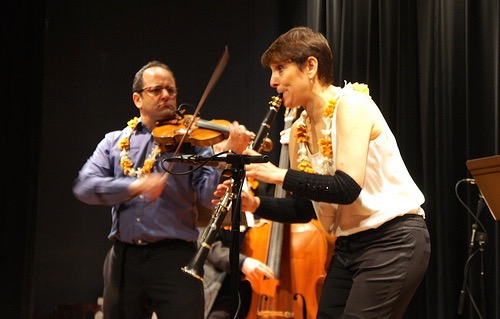If music is your passion and you would love to actually have a career as a musician but are afraid it’s too risky, I’m here to tell you that it’s absolutely possible and, in fact, is the path to pursue if your heart is pulling you in this direction. You CAN make a living and entire worlds that you never knew about will open up to you.
First, get really really good at playing your instrument. That’s actually the easy part. Then, realize that wherever you are — in a small or medium-sized town, small or large city — there is a need for musicians. I’ll say it again. There is a need for musicians. Everywhere. Here is just a short list:
1. Community/Regional Orchestras – contact the conductor and play for him/her. If there’s a formal audition, take it. Even if you don’t win you will get your name out there and can be hired as a sub.
2. Orchestra Personnel Managing or Librarian – if you’re in a regional orchestra this is an extra way to make money to supplement your instrumental-playing wages.
3. Choral Societies – they usually give concerts once or twice a year with small orchestra or chamber group.
4. College Theater Productions – often need “ringers” for their musical productions. Contact the music/theater department at your local college and get to know the faculty.
5. Adjunct Teaching at the College Level – you don’t need a doctorate to teach as an adjunct. And you’d be amazed at how easily teaching music appreciation or music theory comes to you even with just a bachelor’s degree in music. Lecturing in front of a class is very much like performing. In fact, it IS performing.
6. Weddings – let hotels, bridal shops, churches and synagogues know of you. Form a small ensemble and put together a book of easy repertoire. Be ready to be flexible in every way and figure out ways to accommodate most musical requests.
7. Church or Synagogue Music Director – even if you have no background in choral music you can figure out how to rehearse and conduct a choir, choose appropriate music and participate in services.
8. Retirement Communities or Nursing Homes – sometimes they have limited funds to pay for entertainment but even if they don’t these are good venues to try out new pieces and new ensembles like a clarinet quartet. You can even bring your students to play. These are some of the most appreciative audiences. If you’re into jazz you can practice your standards by bringing your laptop and a small speaker and having the backing tracks played electronically.
9. Private Lessons – you can do this out of your home, out of a local music store, or at a local college.
10. Concertize Locally – writing grants is not that difficult (although it can be time consuming). Find out what grants are available through your local arts council (or through a college if you’re affiliated with one) and use the money to fund a solo or chamber performance. You’ll quickly learn all the basics, such as sending in press releases and how to handle ticket sales.
None of what I’ve written here breaks new ground. And all of the above are just ways to get started at a local level. From there, the sky’s the limit because you’ll realize that it’s all possible. For example, once you’ve auditioned for a local orchestra it’s not a big leap to audition for a regional orchestra; once you’ve written a grant to self-fund a local performance of your ensemble you can write a grant to fund a tour for your ensemble ….. you get the idea.
Is it hard work? Yes. Does it require a tremendous amount of self-motivation? Yes. But I guarantee you will never be bored, you will never ever feel like you’re in a mind-numbing, soul-depleting job situation and you will never be “waiting to retire” in order to pursue your dream. You will be living your dream.

Performing in Honolulu, HI with my klezmer ensemble, Big Galute